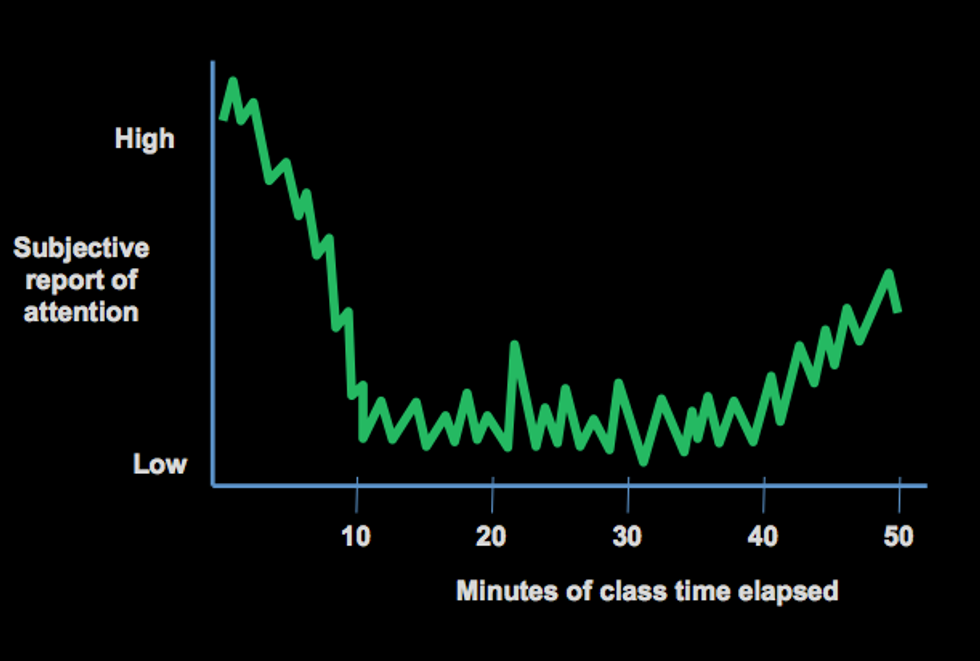It’s happened to all of us at least once. We walk into the classroom, ready to learn and full of energy. But five minutes into the lecture, we are either struggling to stay awake, or we are already asleep.
It could be confusing that something like this happens, especially when you know you got a good 7-8 hours of sleep the night before.
So why exactly does this happen? As usual, science explains it all. Let’s have a look at this graph.
From "Brain Rules" by John Medina
This shows that the student attention level decreases about 10 minutes into a lecture. This is the case with most classes, unless they are taught by a really good professor that knows how to keep his/her students’ attention. Unfortunately, as ironic as it sounds, most professors aren’t aware of learning processes and instructional theory. There needs to be more variation in classes rather than just straight lecturing. And there are multiple ways to do this, such as creating a student activity or asking questions.
It is important to keep in mind that there could be other factors to the reasons why you’re falling asleep in class, such as not getting enough sleep at night, eating a filling meal before class, or poor ventilation.
But student interaction is key. It’s no surprise that classes that involve a mix of different activities (lecture, videos, open discussion, questions/quizzes) tend to keep students most engaged. While it is true students should be motivated to learn, professors need to generate interest.
There are still various factors that go into making a lecture the perfect time to doze off and catch some Z’s. Perhaps it’s just a really boring lecture and even though you can hear him/her loud and clear, your mind will just not let you process what is being said.
There’s also the factor that you are completely uninterested in the subject, and sleeping just seems like the best activity to do at the moment.
Maybe you are learning things that are obvious to you or things you already know.
Another reason could be that you missed part of a lecture for whatever reason, so the information isn’t quite clicking because your mind just doesn’t bother piecing it together.
Lastly, the content of the lecture could be very confusing or difficult to understand, and attempting to understand it just makes you tired.
So if we wanted to fully understand why it’s so easy to fall asleep in class, it would take a lot of experimentation. But it’s a proven psychological fact that we only need to use 20-33 percent of our attention spans to listen to someone else talk, leaving that remaining 67-80 percent to partake in some other activity, such as falling asleep. We also tend to need a break 45-50 minutes after hearing a professor talk for that whole time period.
Sleeping habits, however, differ among everyone. What I find so fascinating is that so many people can fall asleep for so many different reasons.
So the next time you catch yourself falling asleep in class, remember you are not alone or entirely to blame. It is all just part of science.



























